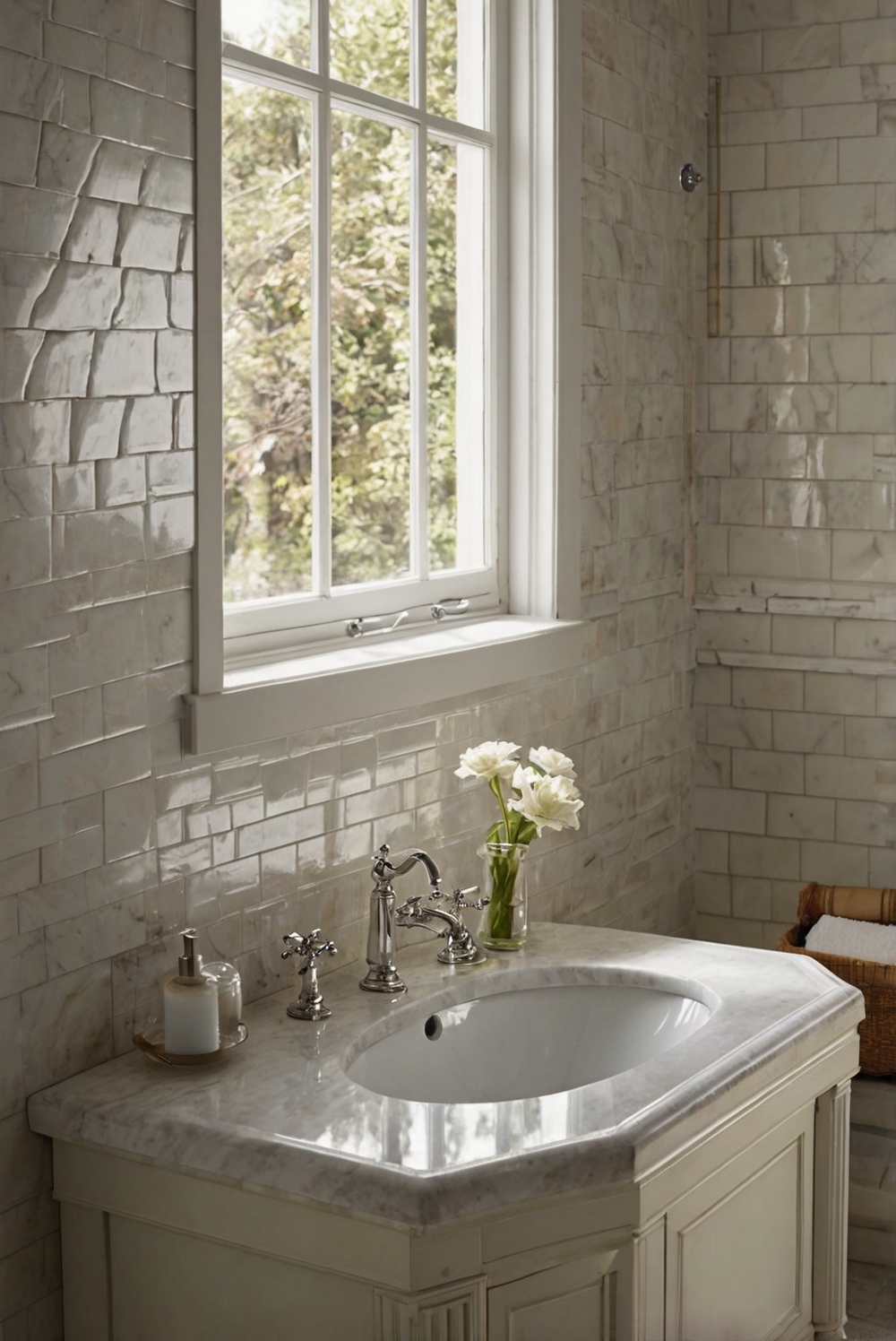Welcome to a daily routine of an interior designer! In this post, we explore how to choose the perfect material for your bathroom sink. Dive in for expert tips.
**
How to choose the right material for your bathroom sink?
**
**
How to choose the right material for your bathroom sink?
**
In selecting the perfect material for your bathroom sink, consider functionality, aesthetics, and durability. Porcelain sinks offer a classic look and are easy to clean, while glass sinks provide a modern touch. Stainless steel sinks are durable and resistant to stains. Natural stone sinks like marble or granite create a luxurious feel but require more maintenance. For a cost-effective option, acrylic sinks are lightweight and easy to install but can scratch easily. Consider the overall design of your bathroom, maintenance requirements, and budget to make the best choice.
– Focus on keywords: home decorating, home interior, home interior design, home decor interior design, space planning, interior design space planning, decorating interiors, interior bedroom design, designers kitchen, kitchen designs, living room interior, designer wall paint, primer paint for walls, color matching painting, paint color match, home paint colors
Consider the Style of Your Bathroom:
When choosing the right material for your bathroom sink, it is important to consider the style of your bathroom. Whether you have a modern, traditional, or contemporary bathroom, the material of your sink should complement the overall design. For a modern look, materials like glass or stainless steel can work well. For a more traditional style, ceramic or porcelain sinks may be a better choice.
Think About Durability:
Durability is a key factor when selecting a material for your bathroom sink. The sink is a high-traffic area and is constantly exposed to water and other elements. Opt for materials that are durable and can withstand daily use. Materials like ceramic, porcelain, and stainless steel are known for their durability and longevity. These materials are resistant to scratches, stains, and chipping, making them ideal for bathroom sinks.
Consider Maintenance:
Maintenance is another important aspect to consider when choosing the right material for your bathroom sink. Some materials require more maintenance than others. For example, natural stone sinks may require regular sealing to prevent staining and water damage. On the other hand, materials like porcelain and stainless steel are easy to clean and maintain. Consider how much time and effort you are willing to put into maintaining your sink before making a decision.
Think About Budget:
When selecting a material for your bathroom sink, it is important to consider your budget. Some materials are more expensive than others, so it is essential to choose a material that fits within your budget. While materials like marble and granite may be luxurious options, they can also come with a hefty price tag. On the other hand, materials like ceramic and stainless steel are more budget-friendly options that still offer durability and style.
Consider Eco-Friendly Options:
If you are environmentally conscious, you may want to consider eco-friendly materials for your bathroom sink. Materials like recycled glass, bamboo, or concrete are sustainable options that can help reduce your carbon footprint. These materials are not only eco-friendly but also durable and stylish, making them a great choice for a green bathroom design.
When choosing the right material for your bathroom sink, it is essential to consider factors such as style, durability, maintenance, budget, and eco-friendliness. By taking these factors into account, you can select a material that not only complements your bathroom design but also meets your practical needs and preferences. Remember to choose a material that suits your lifestyle and maintenance preferences to ensure that your bathroom sink remains functional and stylish for years to come.
1. What are the different materials used for bathroom sinks?
There are various materials used for bathroom sinks, including porcelain, ceramic, glass, stainless steel, copper, and stone. Each material has its own unique characteristics in terms of durability, maintenance, and aesthetic appeal.
2. How do I choose the right material for my bathroom sink?
When choosing the right material for your bathroom sink, consider factors such as the overall style of your bathroom, your budget, and the level of maintenance you are willing to commit to. For example, if you want a sleek, modern look, stainless steel or glass sinks may be ideal. If you prefer a more traditional feel, porcelain or stone sinks could be a better choice.
3. What are the pros and cons of different sink materials?
Each sink material has its own set of pros and cons. For example, porcelain sinks are durable and easy to clean but can chip or scratch easily. Stainless steel sinks are resistant to stains and heat but can show water spots. Glass sinks are stylish and easy to clean but can be prone to scratches.
4. Are there any eco-friendly options for bathroom sink materials?
If you are looking for an eco-friendly option, consider materials like bamboo or recycled glass for your bathroom sink. These materials are sustainable and can help reduce your carbon footprint.
5. How can I maintain and care for my chosen sink material?
Proper maintenance is essential to prolong the lifespan of your bathroom sink. Make sure to follow the manufacturer’s instructions for cleaning and maintenance. For example, avoid using harsh chemicals on a stone sink and use a soft cloth to clean a glass sink to prevent scratches. Regular cleaning and maintenance will ensure your sink stays looking great for years to come.




